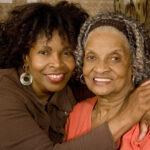While it’s a noble endeavor to support one’s parents in their later years, the responsibility should be shared among family members and possibly supplemented by external resources.
Caring for aging parents is a natural part of life, but it shouldn’t fall solely on the shoulders of one individual.
Let’s explore why it’s crucial to distribute the responsibility of caring for elderly parents rather than burdening one person with the task.
Emotional and Physical Strain:
- Single-handedly taking care of aging parents can be emotionally and physically exhausting. It can lead to burnout, stress, and resentment, impacting both the caregiver’s mental and physical health.
- Sharing the responsibility alleviates the burden on any one individual, allowing for a more sustainable caregiving arrangement.
Financial Impact
- Caring for aging parents often comes with significant financial implications, including medical expenses, home modifications, and loss of income due to caregiving responsibilities.
- Distributing the financial burden among family members can make it more manageable and prevent financial strain on any one individual.
Quality of Care
- Providing adequate care for elderly parents requires a diverse set of skills and resources. No single individual can fulfill all these needs effectively.
- Shared responsibility allows for pooling of resources, expertise, and perspectives, resulting in better quality care for aging parents.
Preservation of Relationships
- Being the sole caregiver for aging parents can strain relationships within families, leading to conflicts and estrangement.
- Sharing the responsibility fosters cooperation and strengthens familial bonds, preserving relationships and ensuring the well-being of all family members involved.
External Support
- Relying solely on one person to care for aging parents overlooks the availability of external support services, such as home health aides, support groups, and respite care programs.
- Shared responsibility enables families to leverage these external resources effectively, providing additional assistance and relief to caregivers.
Finally, Caring for aging parents is a shared responsibility that should be distributed among family members and supplemented by external support services. By sharing the emotional, physical, financial, and logistical aspects of caregiving, families can ensure better quality care for their elderly loved ones while preserving the well-being of all involved.
It’s essential to recognize that no one should have to take on this responsibility alone, and by working together, families can navigate the challenges of aging with compassion and resilience.



